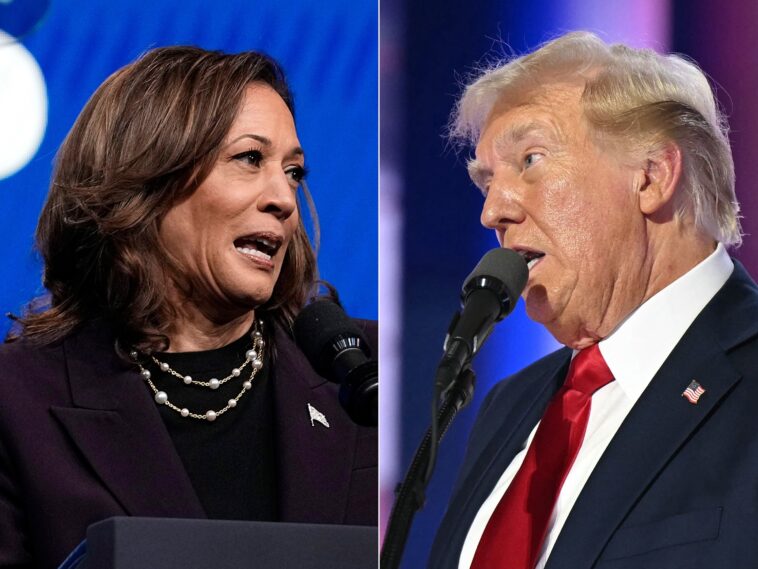Within President Donald Trump’s administration, a peculiar figure has taken shelter—an attorney who was previously in employ of Kamala Harris’ senatorial office and Joe Biden’s National Security Council. The dubious aspect of her tenure pertains to an op-ed she co-authored, labeling Mr. Trump as ‘unfit to run the office.’ While it’s common practice for Presidents to appoint more than 3,000 people for various political positions, this encroachment of a prevalent critic within the Department of Defense stirs concern about the integrity and independence of non-political positions within the federal government.
The federal government is directly responsible for employing almost 2.3 million individuals, rightfully maintaining a majority of non-political career positions. The transition of political appointees to career positions—commonly understood as ‘burrowing in’—is tracked by the Office of Personnel Management. Keeping this in view, it is noteworthy that Samantha Goldstein, who was once part of the Harris and Biden teams, finalized this transition into a career position by 2023.
Goldstein, initially serving as senior counsel at the Office of Legal Policy in the Department of Justice, transitioned to an attorney-advisor at the Office of Legal Counsel within the same department. This move, which was seemingly greenlit on January 15, 2023, resulted in a pay increase from $110,460 to $127,942 annually for Ms. Goldstein.
Departing from the Department of Justice in July 2024, she assumed the role of deputy legal advisor on Biden’s National Security Council. However, in a rather unexpected twist of events, Goldstein moved her sphere of operations to the Trump-led Department of Defense just a few months later in February, serving as the associate deputy general counsel.
Samantha Goldstein’s career history might be set against a Harvard Law School backdrop, where she graduated magna cum laude in 2013, but it certainly wanders down several divergent roads. She has clerked for two U.S. appeals courts—the 8th Circuit Court of Appeals and the District of Columbia Court of Appeals. Adding some more diversity, she interned with the NAACP Legal Defense Fund in 2016 eventually leading to her role as a special counsel for Senator Kamala Harris in 2018.
In the intermittent phase before joining the Department of Justice, which followed her stint with Harris, Goldstein was a part of the legal firm O’Melveny & Myers—dipping her toes into the private sector.
Goldstein’s criticism of President Trump became public knowledge owing to an op-ed she co-authored with Walter Dellinger, a veteran from the Clinton administration, during her second tenure at O’Melveny & Myers. This op-ed, published in the widely recognized Washington Post, outright branded Trump as unfit to preside over the country.
The collaborators reinforced their allegations against President Trump by referencing Special Counsel Robert Mueller’s investigation into the possible collusion amongst Trump and Russia. They asserted, ‘In the face of an unprecedented attack on American democracy by a hostile foreign power, Donald Trump and those who worked for him both as a candidate and a president failed to defend the United States.’ Appalling if true, they deemed this to be a solid footing for questioning Trump’s eligibility in holding office.
Not limiting their arguments to Trump’s alleged complacency during the Mueller investigation, Goldstein and Dellinger scrutinized his overall performance in office. According to them, the Mueller report ‘brings to light that the president and his closest aides violated … fundamental duties imposed by their oaths of office’, which compellingly included the duty to ‘protect and defend the Constitution against all enemies foreign and domestic.’
Recently, an intriguing survey showed that an overwhelming 75% of Washington-based federal employees, earning $75,000 or more annually, who voted for Democratic presidential nominee Kamala Harris, were unwilling to obey a lawful Trump order if they deemed it unfit. This poll robustly suggests that the intentions of some federal government employees is to undermine the goals of the current administration. Such actions invariably point towards an unabashed, biased behavior within the federal government, which should ideally follow the command of the residing president.
Another recent study reveals a concerning imbalance across federal agencies—with Democratic employees outnumbering Republican workers in a ratio of 2:1. As a glaring testament to this, the financing of political contributions from federal employees during the 2024 presidential election fell overwhelmingly on Democrat’s side, with a sizable 84% favoring Harris.
Federal employees are insulated by extensive workplace protections, making it particularly difficult to incentivize adherence to new policies or top-down directives from a president they didn’t vote for. Instances of such rigid bureaucracy are presumably harmful, hindering the president in his campaign to exercise executive powers without the interference of those unsupportive of his goals.
In an effort to address this unchecked autonomy of federal employees, the new administration is seeking reforms to the rules on workplace protection rights. Such initiatives are crucial to enable the president to effectively execute his duties as the head of the executive branch, without unnecessary disagreements and hostile activities from bureaucrats harboring partisan loyalties.

